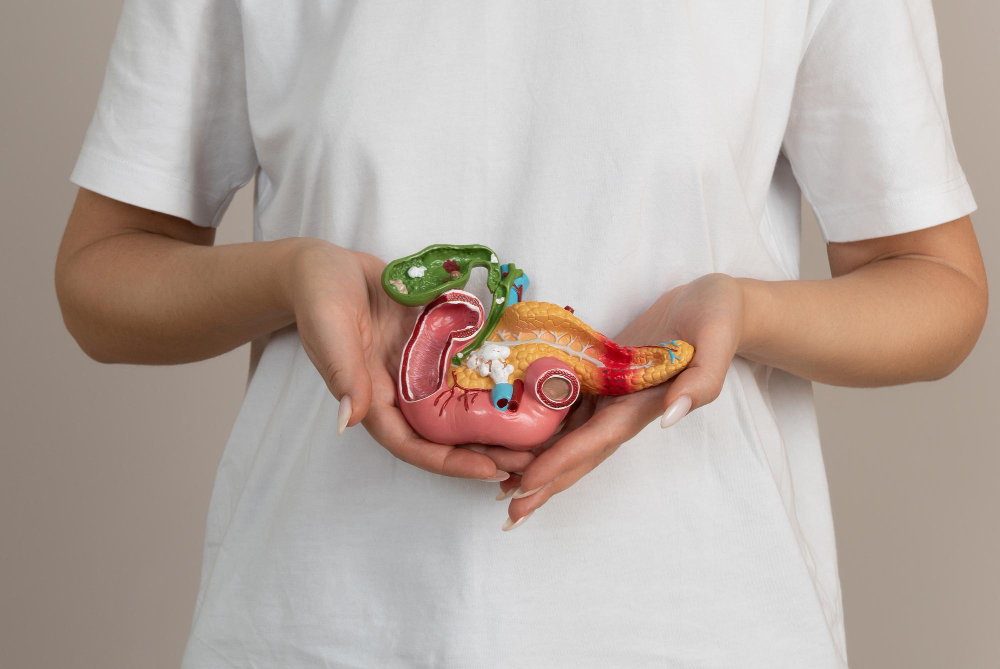Bowel Obstruction

Bowel obstruction occurs when there is a partial or complete blockage of the intestines, disrupting the normal flow of digestive contents. This condition can be serious and requires medical intervention.
Causes Common causes of bowel obstruction include adhesions (scar tissue), hernias, tumors, impacted feces (constipation), volvulus (twisting of the intestine), and inflammatory bowel diseases like Crohn’s disease.
Symptoms Symptoms of bowel obstruction include severe abdominal pain and cramping, bloating, inability to pass gas or stool, nausea, vomiting (sometimes fecal vomiting), and abdominal distension. Symptoms can escalate rapidly if the obstruction is complete.
Diagnosis Diagnosing bowel obstruction involves a physical examination to assess abdominal tenderness and distension. Imaging tests such as X-rays, CT scans, or ultrasound help visualize the obstruction and its location. Blood tests may indicate dehydration or electrolyte imbalances.
Treatment Treatment depends on the severity and cause of the obstruction. Non-surgical options may include bowel rest, intravenous fluids, and nasogastric suction to decompress the bowel. However, surgical intervention often becomes necessary to remove the obstruction, repair damaged tissues, or correct underlying conditions.
Complications Complications of untreated bowel obstruction include bowel ischemia (lack of blood flow to the intestine), perforation (tearing of the intestine), peritonitis (infection of the abdominal cavity), and sepsis (life-threatening infection).

